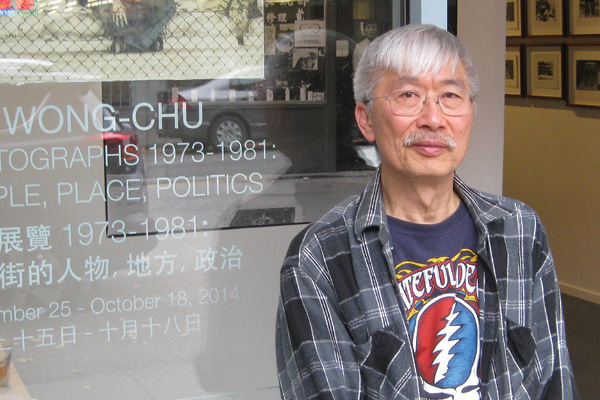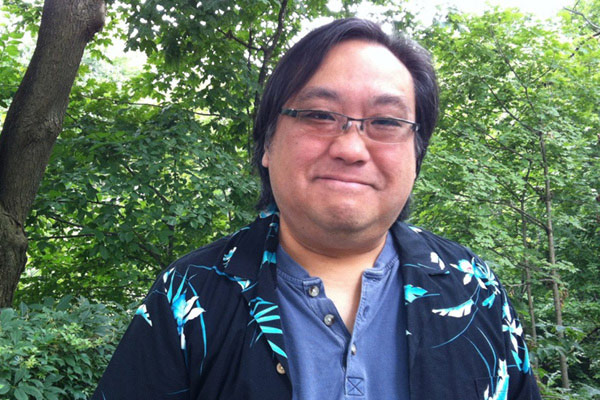By Terry Watada
Last November/December, I found myself in Japan, enjoying the history, culture and, most of all, food. One day, I picked up a copy of the Asahi Mainichi at the local 7/11, primarily because it was in English. Inside was the international edition of the New York Times.
On the front page was an extensive story about Toronto! Specifically, it was about a Syrian refugee family and how they were adjusting to Canadian life. The writers focussed on the ten-year-old daughter. With ice skating, making friends of different origins, watching the movie Annie, taking in the ballet Cinderella and of course television, Wheel of Fortune seems to be her favorite, Bayan Mohammad is adjusting quite nicely. In fact, she is relishing every moment, every new experience. “I want to be Canadian!” she proudly declares.
Interesting to me was the reaction of her parents, a former grocery store owner and a nurse. They watched their daughter’s growth with “pride and alarm”. Unlike the United States which is warning of the Syrian refugee threat, Canada welcomes and has provided and inspired a national movement to help refugees. Private sponsors are providing an apartment, doctors, fulfilling Muslim community needs (a mosque and halal food primarily). And the Mohammads are grateful.
On the other hand, there are issues. When a volunteer took Bayan to the ballet, she was enthralled and begged for lessons. This meant revealing outfits. Singing Christmas carols during a local community activity may have meant a Muslim child was celebrating a Christian holiday. And this is only the beginning.
The parents question why Canadian teenagers are allowed to stay out past midnight. Are children really allowed to move out unmarried at 18? They are constantly asking themselves if they are doing the right thing.
Eman Mohammad, wife and mother, was changing as well. True, she was allowed to have a job back in her homeland, leaving the house most days. But in Canada, she leads a therapy group of Syrian women and she is determined to become a nurse again even if it means years of language and technical education. She is outside the home constantly.
Abdullah Mohammad, husband and father, on the other hand is having difficulty with Canadian life. He doesn’t know what kind of job he wants. Stuck at home, he feels he is losing control, especially moral authority. He rails against Canadian customs like Halloween, teen dances and the Santa Clause parade. He is scandalized by the way girls dress. He feels happy that they are safe in Canada but feels they were “forced to be here”.
Furthermore, he stays at home taking care of the four children and helps in the kitchen, because his wife is out with the therapy group and her studies. “Sometimes I feel weak doing these things. It’s a woman’s job,” he states categorically. It is a loss of power. Many of his fellow male refugees feel the same way and turn bitter for having had to come.
Everything came to a head when Bayan wanted to go to the Island school, a grade eight tradition in Toronto, with her classmates. Her father put his foot down and forbid his daughter from going.
In the end, there are two areas of contention: language and customs. Bayan now attends an Islamic school on Sundays, studying written Arabic, verses of the Quran and Islamic values. She resists but she will be wearing a head scarf. When she is in university (and she will go to university) she will not be allowed to go on an unescorted date. These have caused bitter battles behind closed doors.
All this to say, the entire situation reminds me of the Issei experience. Living in Canada, they experienced a loss of power as well. Parents forced their Nisei children to take language lessons six days a week. The Nisei in turn forced their children to take Japanese lessons once or twice a week. It was important for the Issei to be able to communicate with their children. Nisei felt it would be good for the Sansei to learn another language other than French, mainly so the Sansei could talk to their grandparents. Didn’t happen for the most part.
Many Issei brought the Buddhist church to Canada because it was more “Japanese”. Traditions like Oshogatsu and Obon were observed. The Issei tried to instill in their children and grandchildren the value of Japanese customs like giri and on. For the most part it worked. Shame is the biggest sin. I met a Sansei woman in a doctor’s office recently. We got to chatting and she told me about her neighbourhood. Whenever she mentioned Peter Mansbridge’s name, her voice fell to a whisper. I found this curious until I realized she didn’t want anyone who happened to be listening to think she was bragging about a famous neighbour. So Nikkei.
I understand the Mohammads’ predicament. I went through it myself. Truly all children rebel against their parents and their ways, but in the case of immigrant families, there is the push/pull of home and homeland customs and traditions. Nisei definitely pushed back when it came to things like building a new church in Toronto, the location of the Japanese Canadian Cultural Centre and the direction of various organizations. Sansei did the same when it came to dress, music and “life style”. I certainly have sympathy for Bayan and her parents, the new Issei and Nisei. I only hope Bayan understands all sides of the issue when she matures and appreciates what her parents tried to do for her. She will also have to contend with her own children’s complaints, the new Sansei.


